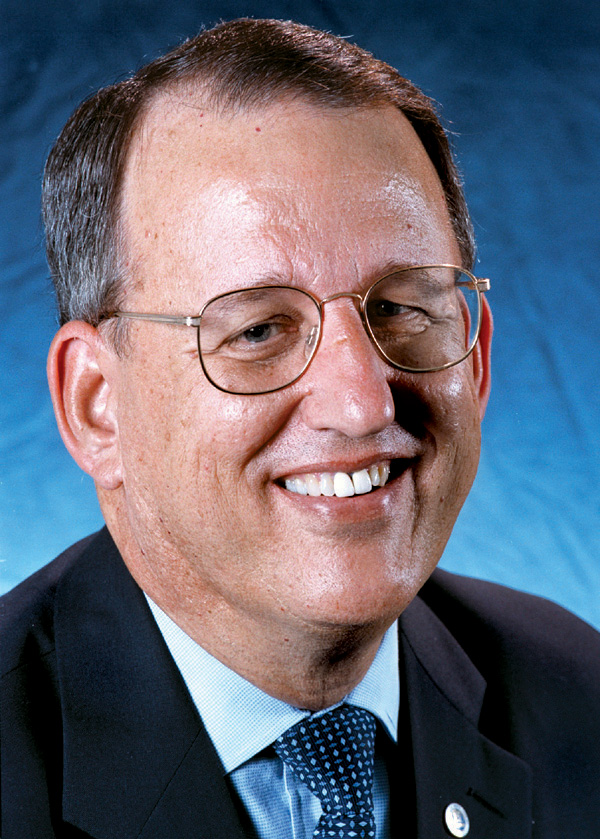Living With Uncertainty
Posted on May 5, 2017We clearly live in interesting and uncertain times. Much is said and written about how we are increasingly divided and even polarized. The political middle appears to have disappeared. Except in primary contests, redistricting has resulted in few truly competitive congressional and state legislative districts.

Douglas S. Dibbert ’70
Those who care about Carolina wonder and some worry. How will the federal budget affect research funding, support for student financial aid, public broadcasting and the arts? Will the proposed immigration ban discourage foreign scholars and students from teaching or enrolling at Carolina?
In Raleigh, did the protracted debate over HB2, the so-called “bathroom bill,” convince students and scholars that North Carolina is unwelcoming? Will they still decline opportunities to learn, teach and conduct research at our University and other universities across the state?
New to North Carolina, UNC System President Margaret Spellings has just completed her first year. The Board of Governors (all of whom are elected by the state Senate and House), to whom she reports, has few members with long tenure. As the result of legislation passed by the N.C. General Assembly and signed by the governor, the size of the board is being decreased by one-fourth over the next two years.
Born during George Washington’s presidency, sustained through the Civil War to be closed soon after and reopened a few years later, Carolina burst onto the national and international stage in the 20th century to become and remain not only the nation’s first state university but one of our nation’s great global public research universities of the 21st century.
Carolina has faced uncertainty in the past. Would the University reopen after the Civil War? Would the University community survive the 1918 flu epidemic that resulted in so many deaths, including UNC President Edward Kidder Graham (class of 1898)? How would Carolina sustain itself during the Great Depression of the 1930s and, more recently, after the collapse of the financial markets in 2008 and 2009?
Carolina’s 11th chancellor, Carol L. Folt, and her leadership team have shaped a thoughtful, challenging and exciting strategic plan for Carolina that will become the foundation of an ambitious capital campaign being launched this fall.
While uncertainty abounds, what remains clear is that our faculty continue to be remarkably productive — earning ever-increasing, record-setting federally funded research grants. Carolina is still a magnet for the best and brightest students in North Carolina and beyond with more than 40,000 applications for an entering undergraduate class of just more than 4,000. And our alumni and friends help sustain Carolina through their generosity — contributing nearly $500 million in each of the past two years.
What is the role of alumni during these uncertain times? Alumni really represent Carolina’s only permanent and largest constituency. Alumni always should be more than cheerleaders and check writers. It is the value of our diplomas for which current faculty and administrators are stewards.
Alumni must remain informed and engaged — with each other and with our University. Alumni must share our concerns and expectations with those who serve and lead in the legislative and executive branches at both the state and federal levels. Alumni must encourage and support those who are Carolina’s advocates.
As citizens, we must speak up, but we also must listen and hear. We should seek to understand as much as we hope to be understood. Each of us should accept that it is just possible that we are sometimes wrong and that the other person could be right. As Carolina students, we learned that while life is much easier if issues are always black and white, the world is far more complicated, with a wide range of grays.
Carolina remains a robust marketplace of ideas, and we should be reassured that our students continue to be exposed to a wide range of speakers, many of whom present provocative perspectives. And we should withhold judgment when hearing or reading that something “outrageous” was said or done at Carolina.
Yes, these are uncertain times for our world, our country, our state and our University. But just as you may be certain that the Davie Poplar stands tall with our sustaining Old Well nearby, eager, bright students continue to be inspired and taught by our remarkable faculty, who continue their never-ending quest for discoveries to cure our most challenging diseases and solve our greatest problems.
Yours at Carolina,

Douglas S. Dibbert ’70
P.S. Since 1983, the GAA’s Tar Heel Network has provided timely information to Carolina alumni who advocate on behalf of Carolina. For more, see the “Yours at Carolina” column titled “Carolina’s Tar Heel Network” in the January/February 2009 Review. If you’d like to be added to the network — or to confirm that you already are a Tar Heel Network member — just send me an email.
